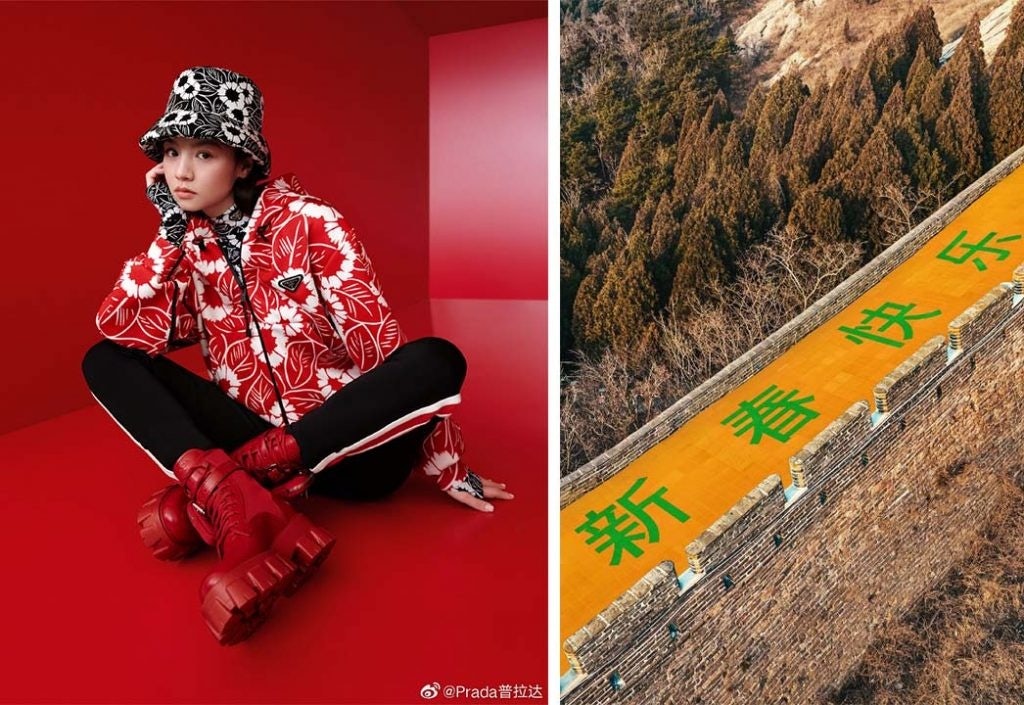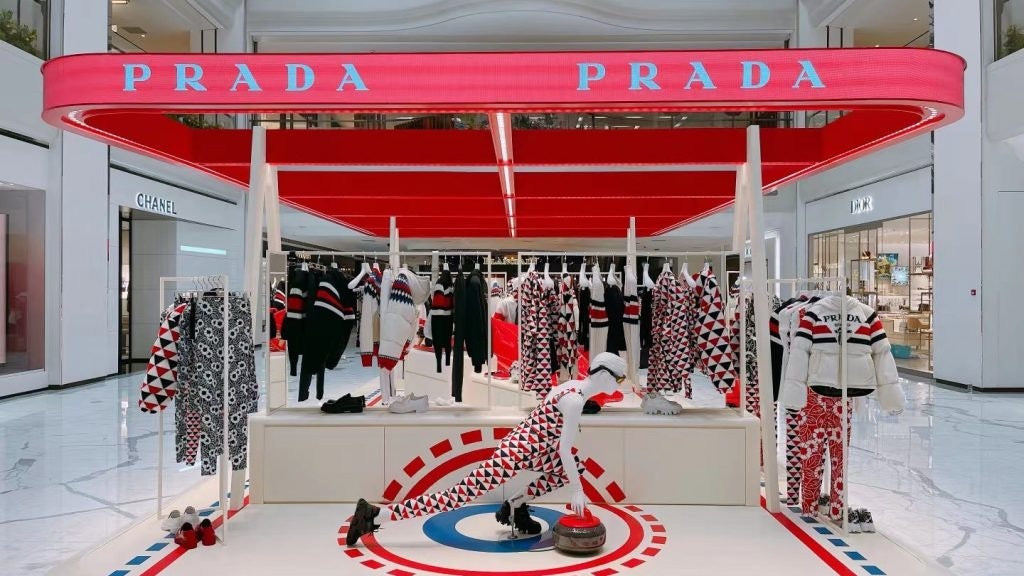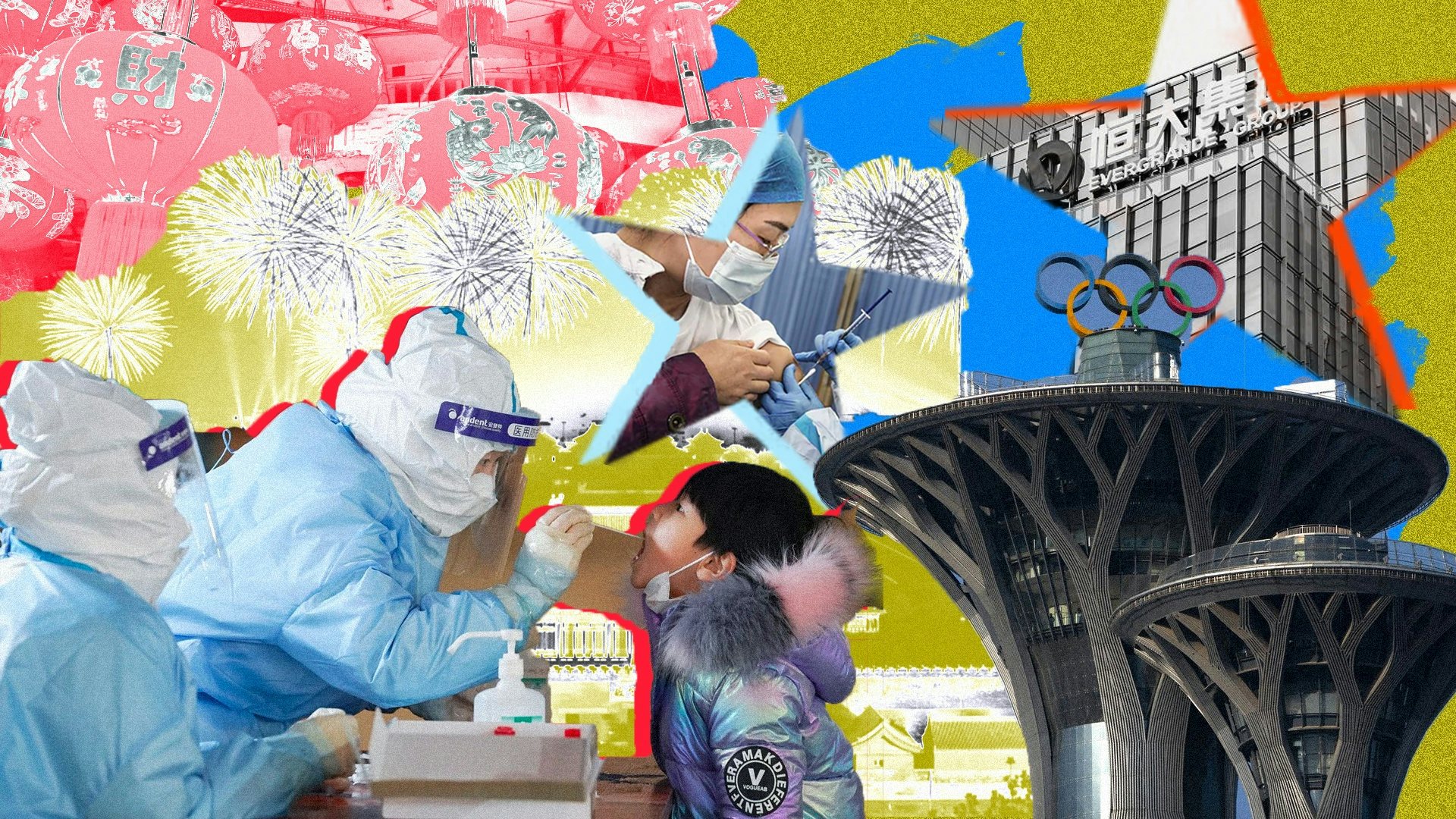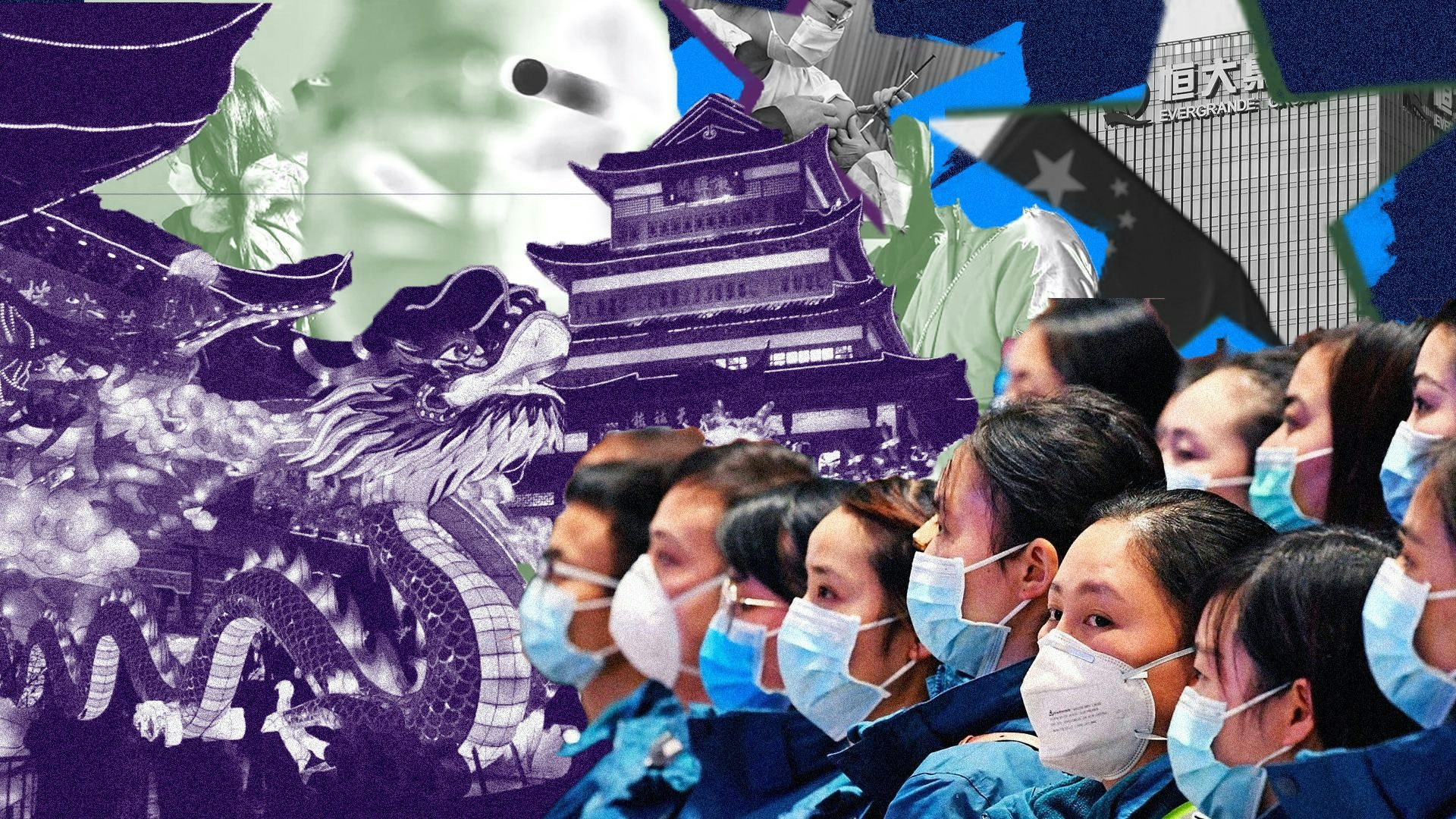Recent headlines paint a pretty bleak future for China. Between city-wide lockdowns, supply chain setbacks, sluggish consumer spending, tech and entertainment crackdowns, and a crumbling property market, there is no shortage of problems that could have rippling effects on global brands.
But China is nothing if not resilient. Although analysts forecast that the economy will swell at a modest rate of above 5 percent this year — a drop from the estimated rate of 8 percent in 2021 — Beijing is bullish on change. Looking ahead, the government has pledged to double down on stability by increasing support for businesses and easing monetary and fiscal policies. At the same time, it has cultivated several bright spots like sports and travel retail to better serve consumers stuck within its borders.
So, for those who rather see the cup as half full, here’s an upbeat take on what the mainland market could look like in 2022.
Beijing will live up to its promise of economic stability#
Despite being the only major economy to escape recession in 2020, China’s rebound has since tapered off. Due to the external pressures mentioned above, the World Bank recently cut its 2022 forecast of China’s GDP growth from 5.4 percent to 5.1 percent, marking the second slowest pace of expansion since 1990.
While businesses should manage their expectations accordingly, they do not have to be entirely pessimistic either. In fact, Morgan Stanley expects a slight upswing this year as China’s central bank lowers its reserve requirement ratio — injecting 188 billion into the economy — and cuts its main interest rate to bolster consumption. The government has also revised its property market regulations in light of Evergrande’s default and urged financial institutions to fund acquisitions of real estate projects from troubled developers.
Meanwhile, global demand for Chinese goods is helping to buffer China’s cooling economy, with exports hitting 300 billion for a third straight month in November. This isn’t to say that a dramatic reversal is ahead but rather a reminder that recovery is uneven and that the fall may not be as hard as prophesied.
Zero-COVID measures will lead to faster containment#
The last zero-COVID holdout, China has faced ongoing disruptions to consumption, industrial production, and travel. The recent outbreak in Xi’an, the largest since Wuhan, has even left residents short of food and essential supplies as the city largely bans people from leaving their homes and orders non-essential businesses to shutter.
But for all the downsides, this strategy has done a good job of keeping the population practically virus-free. Compared to the US, which is currently averaging 700,000 cases per day, the country reports roughly 160 cases daily. The harsh lockdown in Xi’an has already helped the infection rate drop from more than 1,900 in total down to double-digit figures. Fingers crossed, these extreme measures will allow the mainland to soon resume business as normal-ish and eventually open up its borders in the latter half of the year — if not to the rest of the world, then at least to Hong Kong.
The Year of the Tiger will roar on#
That said, these strict COVID measures will certainly have an impact on the first festival of the year: Lunar New Year. As the government closes off virus hotspots and encourages the rest of the country to stay at home, the 40-day travel season will likely be the least busy in seven years with an estimated 280 million railway passenger trips.
But last year’s stats prove that plummeting travel does necessarily squander shopping urges. Despite the 70 percent drop in passenger trips during the two weeks leading up to the Spring Festival in 2021 compared to 2019, online sales from January 20 to February 3 actually broke 78 billion (for comparison, Alibaba made 84.5 billion during Singles’ Day 2021). Ticket sales for local tourist attractions jumped 300 percent, and several luxury brand boutiques in Shanghai Village and Suzhou Village reported having their all-time highest single day of sales that year. With e-commerce surpassing physical retail in China anyways, a few Omicron cases should not stop people from splurging over the holiday.

The Olympics will further fuel China’s sports passion#
Speaking of major events, Beijing is set to host the Winter Games on February 4. However, following the West’s diplomatic boycott over reported human rights abuses, corporate sponsors like Intel and Airbnb have been called out for their silence on the issue. While some brands have argued that sponsoring the Olympics does not negate their commitment to human rights, others plan to simply omit references to the host city in their marketing campaigns or run non-Olympic themed ads.
Given this, perhaps the opportunity lies less in the Games themselves and more in the sports culture that has blossomed around them. By 2025, Beijing wants the winter sports industry to be valued at 157 billion. With skiing and snowboarding becoming mainstream pastimes, sales of ski-related brands on Tmall doubled year-on-year during Singles’ Day 2021 and booking for ski resorts nationwide from November to January 2022 increased 363 percent compared with 2020. Already, luxury houses like Prada and Dior have started targeting this adrenaline-seeking segment via pop-ups and special collections.

Duty-free destinations will shine#
Traveling, in this economy? According to the China Tourism Academy, revenue of domestic tourism is likely to total 600 billion in 2022 and recover to 70 percent of pre-pandemic levels. Besides the growing interest in snow tourism, duty-free destinations should also see a boom from domestic travelers, particularly as new policies expand the range of duty-free goods and raise the annual limit on spending.
Not only should businesses continue eyeing Hainan, which saw duty-free revenue reach 9.47 billion last year, but also Shenzhen and Shanghai. With tariffs on luxury items sometimes exceeding 30 percent, the expansion of duty-free shops in these cities should encourage purchases of high-end imported goods. Of course, repatriated spending may fluctuate once global travel resumes; however, until then, China’s duty-free market is on track to top 23.5 billion in the next three years.
More roads will lead to the metaverse#
Clearly, government crackdowns on cryptocurrency and gaming have not deterred China’s metaverse mania. As of December 19, more than 1,360 domestic companies had registered over 8,500 metaverse-related trademarks — a remarkable leap from the 130 companies that had filed applications just three months prior.

Among those paving the way, search engine service Baidu launched a metaverse app, XiRang, in December and Tencent is on its heels to develop gamified metaverse experiences. State media Xinhua, tech giants like Alibaba and JD.com, and Mandopop celebrities like A Duo and Jay Chou have similarly jumped on the wagon with NFT drops. Though the metaverse is in its infancy and Beijing will certainly be keeping watch over how it develops, this market should continue to scale up — so long as brands stay away from crypto transactions and monopolistic practices.
For the Pessimist’s Guide to Luxury in China for 2022 read here.


